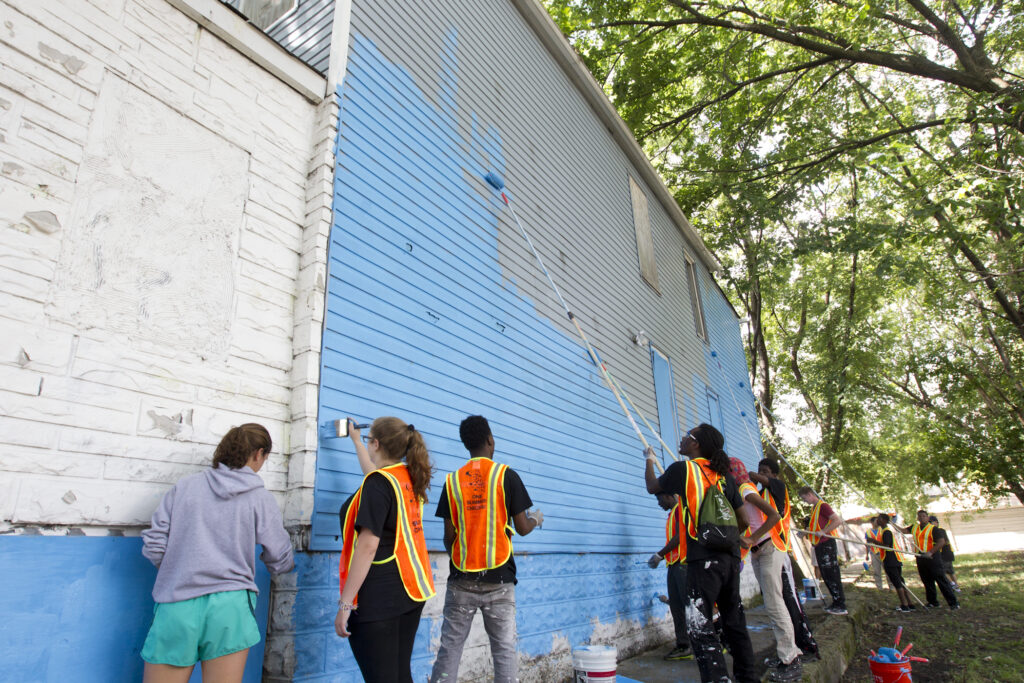One Summer Chicago Plus

Sara Heller and Jon Davis, in partnership with the Crime Lab, evaluated a youth jobs and mentoring program, One Summer Chicago Plus, which provided jobs to thousands of youth as part of the city’s anti-violence strategy.
Challenge
Despite decades of social science arguing that joblessness among marginalized youth is a key cause of violent offending, programs to remedy youth unemployment do not consistently reduce involvement with the criminal justice system.
Opportunity
Summer programs for youth providing access to gainful employment and coupled with adult mentorship, offer one potential avenue to lessen the risk that youth become involved in the criminal justice system.
Project overview
In 2012, the City of Chicago launched One Summer Chicago Plus, a youth summer employment program that provided students in historically underserved communities with paid entry-level jobs at local public and nonprofit organizations. Youth participants also received social and emotional learning programming centered around cognitive behavioral principles as well as adult mentorship to ensure youth were successful after the program’s conclusion. In 2013, the program was expanded to include private sector opportunities and out-of-school youth and narrowed to include only male youth in an effort to target services to the youth most vulnerable to gun violence.
Sara Heller and Jon Davis, in partnership with the Crime Lab, conducted a randomized controlled trial to test the efficacy of the program. The program reduced the number of violent crime arrests for youth participants across both cohorts by 6.4 arrests per 100 youth over a year’s time compared to the baseline of 18.3 arrests—an approximately 35% reduction. For the 2012 cohort, over the course of 16 months, the program had decreased violence by 43%. For the 2015 cohort, program participants had a 52% decline in arrests, although this result is not statistically significant.
These positive outcomes show the great promise of this strategy for reducing crime rates among youth.
Years Active
2012 – 2016
Topics
Project Leads
Jonathan Davis
Assistant Professor, University of Oregon

Sara Heller
Assistant Professor of Economics

Abdul Latif Jameel Poverty Action Lab (J-PAL) Youth Summer Employment Report
An analysis of the effectiveness of youth summer employment with a reduction in youth involvement in violent crime.

Summer Jobs Reduce Violence among Disadvantaged Youth
This article in the journal Science explores the impact of a summer employment program in Chicago on disadvantaged youths and their propensity for violent crimes.

Rethinking the Benefits of Youth Employment Programs: The Heterogeneous Effects of Summer Jobs
This research paper presents the results of two randomized field experiments, which both involved offering supported summer job opportunities to different groups of young people in Chicago.
When Scale and Replication Work: Learning from Summer Youth Employment Experiments
This research paper addresses the challenges of scaling up and replicating successful human capital interventions due to two key sources of variability: differences in the treatment itself and changes in the target population.
